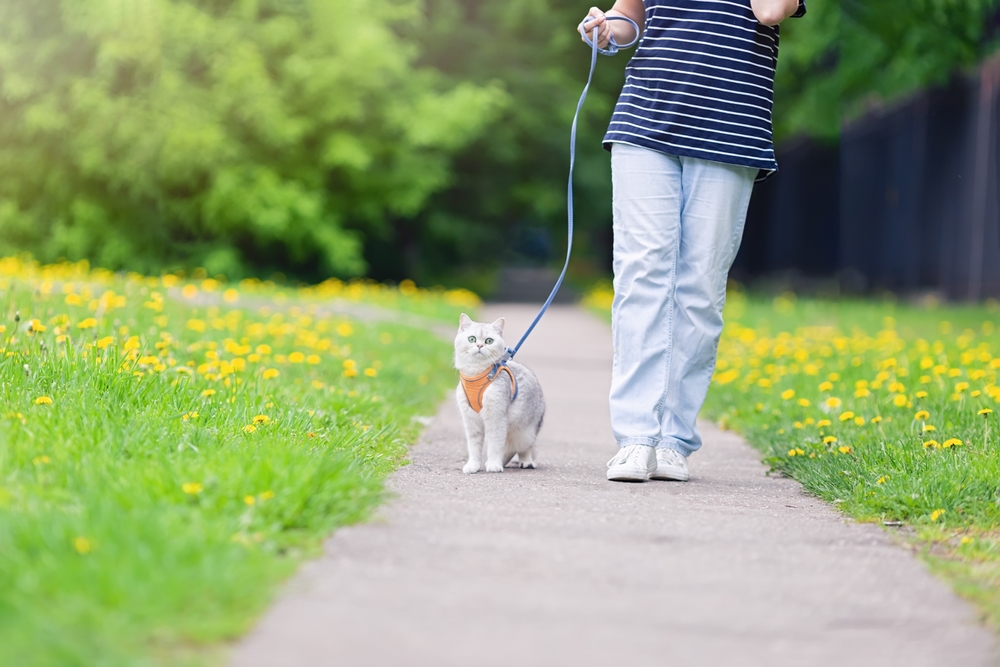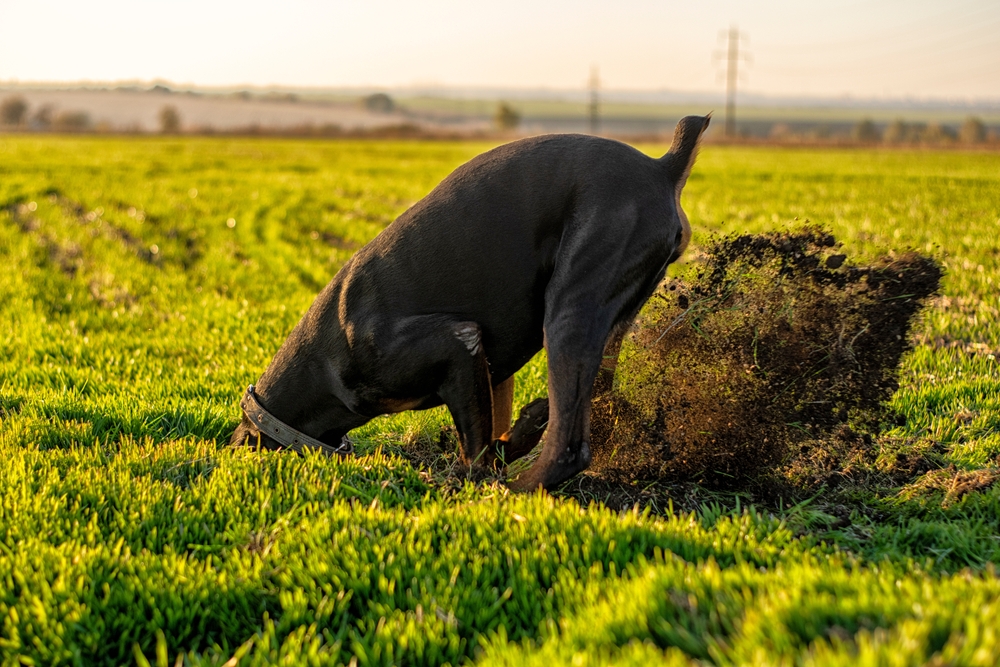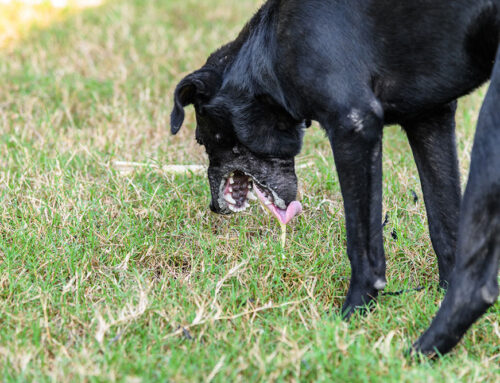Soil, the foundation of our landscapes, harbors hidden dangers for cats and dogs. While dirt may seem innocuous, it can contain various substances and organisms that pose serious risks to our four-legged friends. From toxic chemicals to potentially harmful viruses and parasites, our Peak Pet Urgent Care team covers these dangers so you can safeguard your pet’s health.
Soil dangers to pets
Pets love to root around and dig in the dirt, which is a natural instinct. While they’re undoubtedly having fun, however, they may also be coming into contact with harmful or unhealthy substances, including:
- Toxic chemicals — Many standard gardening products contain pesticides and herbicides, which can linger in soil long after application. These chemicals are poisonous to pets if ingested or absorbed through their skin.
- Heavy metals — Soil can contain heavy metals such as lead, arsenic, and cadmium, which may originate from industrial pollution or old paint. Ingesting soil contaminated with these metals can lead to severe health issues in pets, including organ damage and neurological disorders.
- Harmful bacteria — Dirt is teeming with microorganisms, including bacteria, some of which can be harmful to pets. Pathogenic bacteria such as salmonella and E. coli can cause gastrointestinal upset or more severe effects if ingested by pets. Leptospirosis is a blood infection caused by the bacteria Leptospira, which can cause health issues ranging from mild to life-threatening, including irreversible kidney damage.
- Fungal spores — Fungi found in dirt and water can sicken pets who come into contact with them through inhalation or ingestion. Common fungi found in soil include Histoplasma capsulatum, Blastomyces dermatitidis, and Coccidioides immitis (i.e., Valley Fever), and all have the potential to cause serious illnesses in cats and dogs.
- Viruses — Many viruses can live outside the body for a period of time. Parvovirus, a highly contagious illness, can exist in contaminated soil and cause severe diarrhea and dehydration in puppies and unvaccinated dogs. Feline panleukopenia virus, another resilient pathogen, can persist in the environment and infect susceptible cats.
- Parasites — Soil can harbor various parasites, such as roundworms, hookworms, and whipworms, which are a threat to pets who ingest them or whose skin comes into contact with them. These parasites lay their eggs in the soil and can cause intestinal infections and other health complications when a pet ingests them.
- Foreign objects — Dirt may contain sharp objects, including glass shards, metal fragments, or splintered wood, which can injure pets if stepped on or ingested accidentally.
Protecting your pet from dirt dangers

While your furry pal may want to play in the dirt, it’s best to direct them to another enjoyable activity. Use the following safety suggestions to protect your four-legged friend from pathogens and other contaminants in soil:
- Supervise while outdoors — Supervision is essential when your pet is outdoors, especially in natural areas frequented by wildlife and animals. If they begin to dig or investigate the ground, divert them to another location to help prevent them from encountering harmful substances or dangerous objects.
- Leash your pet — While on walks or hikes, ensure your pet is on a leash. They’re less likely to play in the dirt or encounter wildlife when they’re safely leashed and close to you.
- Practice pet-friendly gardening — Opt for pet-safe gardening products and avoid using toxic chemicals in areas accessible to pets. Creating designated pet-free zones in the garden can also help minimize risks.
- Build a pet sandbox — If your pet desperately wants to dig, consider setting up a sandbox for them to play in. Regularly swap out old sand with new to prevent bacterial growth and other harmful pathogens.
- Pick up after your pet — Pet waste is one of the key contributors to the transmission of bacterial and viral infections. Always properly dispose of your pet’s waste to minimize the spread of infectious diseases.
- Schedule wellness exams — Routine checkups, including vaccinations and fecal examinations for parasites, can help detect and address any health issues arising from exposure to bacteria, fungal spores, parasites, and other outdoor contaminants.
While soil plays a vital role in our natural environment, it’s important to recognize the potential hazards it poses to our pets. Understanding dirt dangers and taking proactive measures to mitigate their risks can ensure a safer environment for your furry friend while you enjoy outdoor activities together. Contact our Peak Pet Urgent Care team with questions or if your pet shows any signs of illness after being exposed to dirt.







Leave A Comment